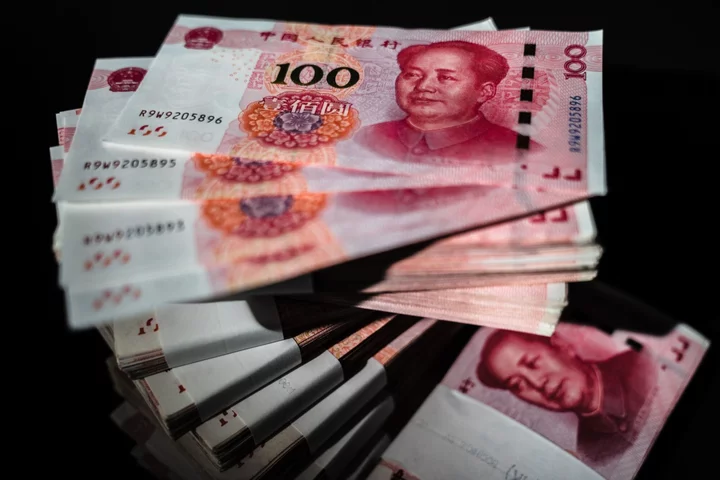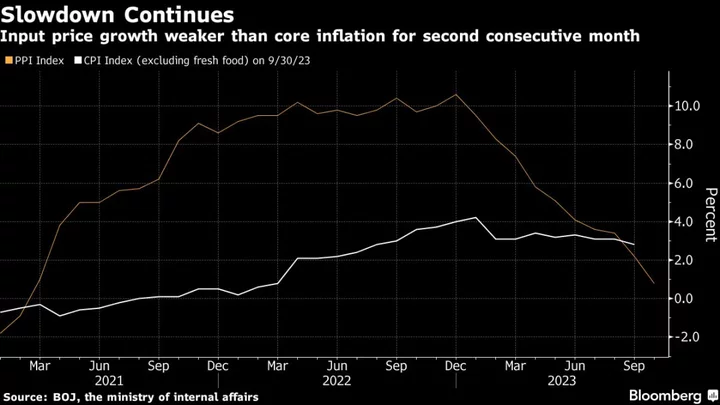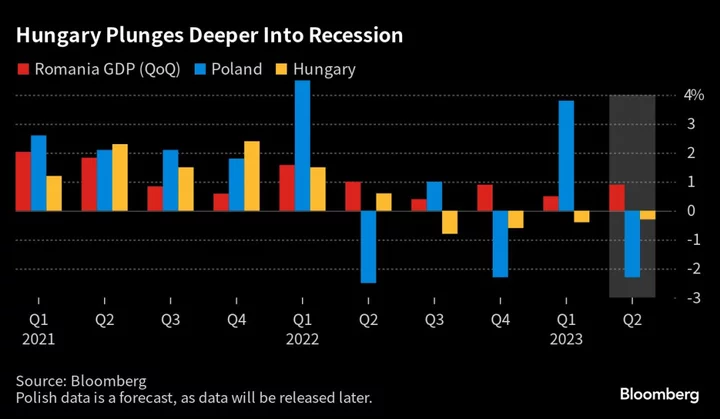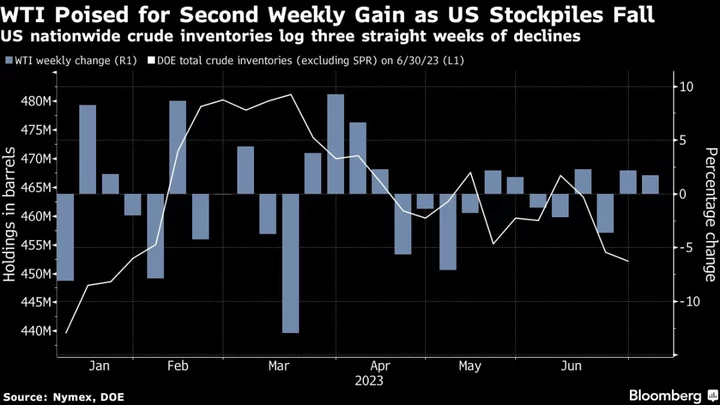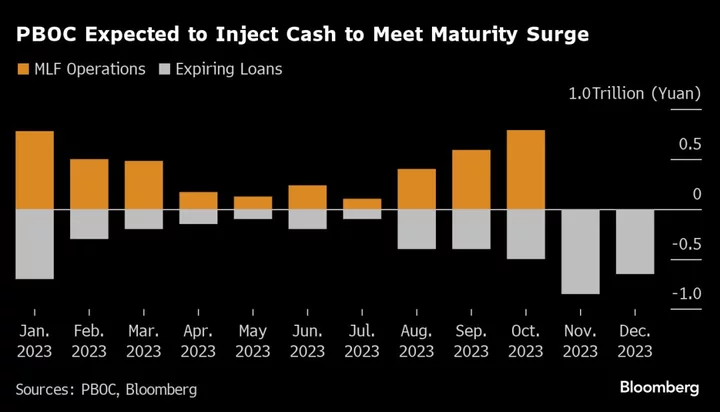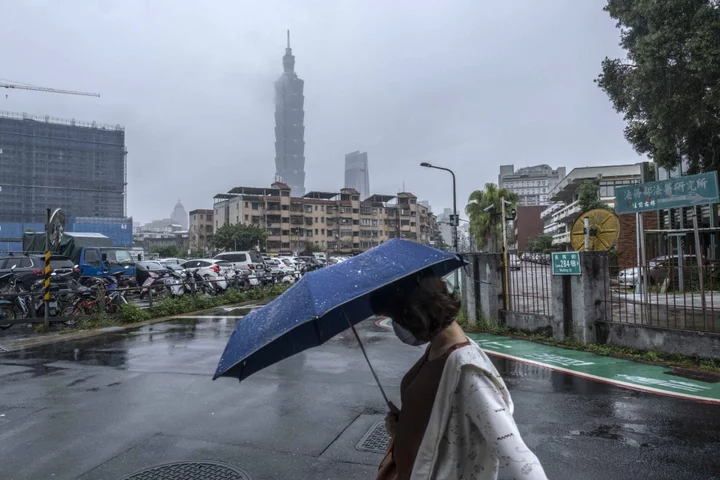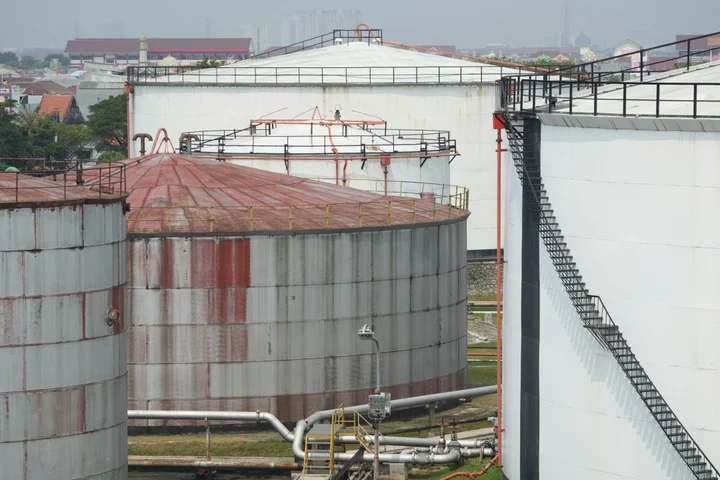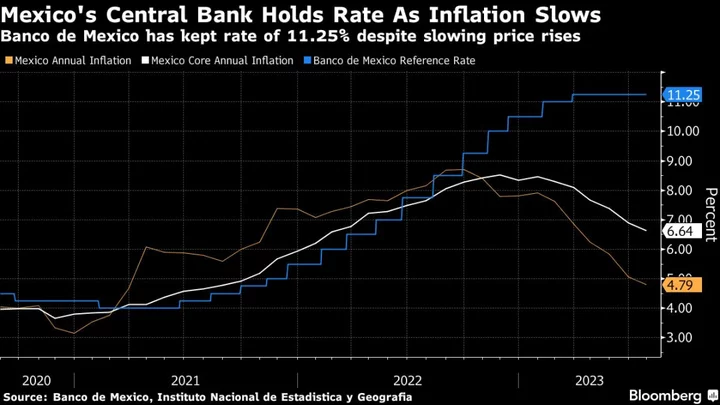One of China’s largest private wealth managers has triggered fresh anxiety about the health of the country’s shadow banking industry after missing payments on multiple high-yield investment products.
The turmoil at Zhongzhi Enterprise Group Co., a secretive financial conglomerate that manages about 1 trillion yuan ($138 billion), surged to the fore after several of its corporate clients disclosed overdue payments by a trust unit. In a sign that Chinese authorities are worried about potential contagion, the banking regulator has set up a task force to examine risks at Zhongzhi, according to people familiar with the matter.
While little known outside China, Zhongzhi is among the biggest players in the country’s $2.9 trillion trust industry, which combines characteristics of commercial and investment banking, private equity and wealth management. Firms in the sector pool savings from wealthy households and corporate clients to offer loans and invest in real estate, stocks, bonds and commodities.
Chinese trusts have been under pressure for years after regulators began clamping down on the nation’s shadow-banking excesses in 2017. But Zhongzhi’s difficulties have emerged at a particularly sensitive time for investors, many of whom are already worried about the state of the world’s second-largest economy and its property market.
One of the nation’s largest developers, Country Garden Holdings Co., is on the brink of default, while loans extended by Chinese banks fell to the lowest level since 2009 last month in a sign of waning demand from businesses and consumers. Zhongzhi’s trust unit bought stakes in real estate projects last year, betting on a market rebound that has so far failed to materialize.
Why China Markets Are Being Rocked by Contagion Fears: QuickTake
The confluence of risks is adding pressure on Xi Jinping’s government to shore up investor confidence. Chinese stocks slumped on Monday, with the CSI 300 Index falling for the fifth time in six sessions, while the yuan depreciated toward its weakest level this year. Analysts at JPMorgan Chase & Co. warned that the turmoil at Zhongzhi and Country Garden may create a “vicious cycle” for real estate financing in China.
“The biggest problem now is how to isolate the risks associated with Zhongzhi group so that it doesn’t cause confidence of the entire trust industry to collapse,” said Shen Meng, a director with Beijing-based Chanson & Co. “If the situation continues to worsen, expect the scale of the risks to be no less than when a leading property developer defaults.”
A total of 106 trust products worth 44 billion yuan defaulted this year through July 31, according to data provider Use Trust. Real estate investments accounted for 74% by value.
Three firms said late Friday they failed to receive payments on products issued by companies linked to Zhongzhi, including Zhongrong International Trust.
Beijing-based Zhongzhi was founded in 1995 by Xie Zhikun, who built the firm into a sprawling empire. Xie died of a heart attack in 2021, just as Covid-19 and pandemic lockdowns slowed China’s economy and increased volatility in its capital markets. While his replacement Liu Yang vowed to keep the company’s strategic focus on industrial and asset management businesses unchanged, the economic slowdown and the property-market slump have weighed on its operations.
Read more: China Orders Surprise Audit of $3 Trillion Trust Industry
Zhongzhi is the second-largest shareholder of Zhongrong Trust, with its ownership at around 33%. The conglomerate also holds stakes in five other licensed financial firms, including a mutual fund manager and two insurers, and invested in five asset management companies and four wealth units, according to its website. It also controls listed companies and owns 4.5 billion tons of coal reserves among its industrial operations.
Zhongrong Trust alone has 270 products totaling 39.5 billion yuan due this year, Use Trust data showed. The average yield on those products amounted to 6.88%, compared with the benchmark 1.5% one-year deposit rate paid by banks.
The trust company has disclosed little to the public about its situation, though it has said it’s aware of forged letters being shared on social media saying the company is no longer able to operate. The firm has reported them to authorities, according to a statement on its website.
In one unverified letter being circulated on social media, a wealth manager at Zhongzhi apologized to his clients, saying the group’s wealth arms have decided to delay payments on all products since mid July. The incident involves more than 150,000 investors with outstanding investments totaling 230 billion yuan, according to the letter.
The prolonged slump in China’s property sector has brought previously sound property developers to their knees. The sector is caught in a vicious cycle where failing developers put homebuyers off purchases, which then crimps cash flow of companies. Home sales tumbled the most in a year in July.
The missed payments show “how the real estate’s liquidity problem can create a domino effect on other sectors, including the trust industry,” said Gary Ng, senior economist at Natixis. “It would not be surprising to see more trusts with a high asset allocation towards real estate face payment issues.”
Read more: Country Garden’s Losses Fan Fears on China Property Market
The National Financial Regulatory Administration, Zhongrong Trust and its parent Zhongzhi Group didn’t respond to requests seeking comment.
Nacity Property Service Co. and KBC Corp. first announced news of the delayed payments by Zhongrong International Trust in statements Friday evening. KBC, a carbon products manufacturer, said in a statement to the Shanghai Stock Exchange that the delayed payments were tied to 60 million yuan invested with Zhongrong Trust.
Another listed company said on Friday that payments on one wealth product it bought from a Zhongzhi unit had become overdue this month and it will take legal measures to recover investment losses.
Zhongrong Trust, which managed 786 billion yuan in assets as of Dec. 31, said its businesses faced a “relatively high level” of credit risks in 2022 as counterparties’ liquidity pressures and refinancing difficulties eroded their ability to honor payments, according to its annual report for the year.
Real estate accounted for 11% of Zhongrong Trust’s trust assets, following 42% in industries and 33% in financial institutions, according to its annual report. The company was previously fined 200,000 yuan by regulators for investing in a property project that lacked relevant approvals, and pledged to improve compliance.
Trust firms, including Zhongrong Trust and MinMetals Trust Co., have bought stakes in at least 10 real estate projects last year, betting that unfinished homes will eventually yield cash to pay off some of the $230 billion in property-backed funds they have issued to investors.
China’s benchmark CSI 300 Index fell 0.7% on Monday, while the Hang Seng China Enterprises Index of shares in Hong Kong lost 1.6%. The yuan weakened 0.2% against the dollar.
--With assistance from Qingqi She and Zheng Li.
(Adds regulatory task force from second paragraph.)

